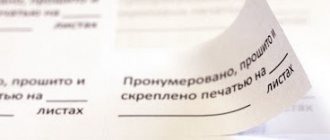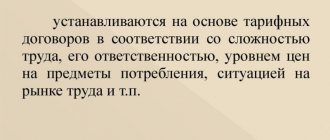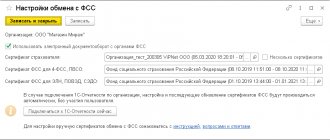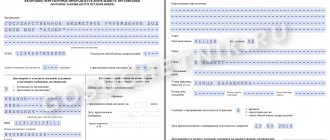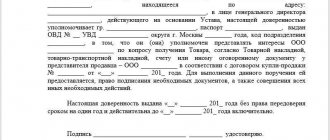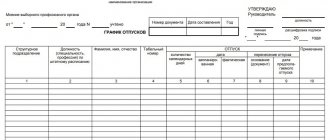Many, especially novice lawyers, often fall into a kind of stupor when they find an individual entrepreneur in the “head” of the agreement instead of the usual “Romashka LLC” represented by the Director, full name, acting on the basis of the Charter.” And on what basis does the IP operate? There are also options with powers of attorney, which cause no less confusion, but what about individual entrepreneurs? Some people write “on the basis of the Charter” out of habit, others – as in the case of individuals. persons “on their own behalf”. The first is definitely wrong; individual entrepreneurs do not have a charter. The second is true, but partly, since an individual entrepreneur is not just an individual. He has the status of an individual entrepreneur. Although there is an opinion that it is enough to indicate “IP full name” in the header, without indicating the basis on which it acts.
IP status
The status of an individual entrepreneur is the right given to a citizen (or a foreigner, or a stateless person, in general, an individual) by the state to legally engage in business activities, make a profit, at his own peril and risk, and, most importantly, to pay taxes on this (in fact, the status is for this and there is).
The status of an individual entrepreneur is recorded in the Certificate issued to him upon registration in the Unified State Register of Individual Entrepreneurs (USRIP). In fact, he is given a certain number under which he is in this register.
On what basis does the IP operate?
An individual entrepreneur acts on the basis of the status given to him by the state. The basis for assigning this status will be the document on the basis of which it acts. This is a Certificate of state registration as an individual entrepreneur. But - only those issued before January 1, 2017. From this date, the Certificate is not issued, according to Order of the Federal Tax Service of Russia dated September 12, 2016 N ММВ-7-14 / [email protected] Instead, a Record Sheet in the Unified State Register of Individual Entrepreneurs is issued, which is the basis for the activities of the individual entrepreneur. If it is lost, you can obtain from the territorial inspection a Notification of registration as an individual entrepreneur:
New requirements
Previously, entrepreneurs wrote their last name, first name, patronymic, or referred to the Charter. However, this formulation is now incorrect. The individual entrepreneur performs actions based on the received status. For those registered before 2016, the Certificate from the Unified State Register of Individual Entrepreneurs is a document confirming their status. After 2022, entrepreneurs indicate the Entry Sheet in the Unified State Register of Individual Entrepreneurs (form P60009) as the basis.
When registering transactions, a businessman can indicate the details and status of an individual entrepreneur by signing the invoice and writing the number and date of issue of the Certificate or the Unified State Register of Entrepreneurs record sheet.
Constituent documents of an individual entrepreneur
As such, individual entrepreneurs do not have constituent documents, since only legal entities have them. There are a number of documents that are mistakenly considered constituent documents, although they can be called registration or corporate:
OGRNIP
As already mentioned, the Certificate of assignment of OGRNIP (state registration as an individual entrepreneur) is not issued from January 1, 2022. OGRNIP can be found from the Record Sheet, or from the Unified State Register of Individual Entrepreneurs.
Technically, OGRNIP is a unique (at least it should be) 15-digit number containing the subject code, tax number, serial number and checksum.
TIN
The TIN can also be found from the Record Sheet, or from the Certificate, if the individual received the TIN before registration. This is a 13-digit number, similar in logic to OGRNIP.
Extract from the Unified State Register of Individual Entrepreneurs
At the moment, the practice is that only an extract from the Unified State Register of Individual Entrepreneurs is sufficient as a basis for confirming the activities of an individual entrepreneur. Or the Record Sheet, which is essentially the same thing.
In the same way, it is not a constituent document, but rather a legal document, like all those listed above.
The Supreme Court explained the nuances of issuing a power of attorney to represent the interests of an individual entrepreneur in civil proceedings
On February 9, the Judicial Collegium for Civil Cases of the Supreme Court of the Russian Federation issued a Ruling in case No. 1-КГ20-13-К6 on the recovery of damages from an accident in favor of an individual entrepreneur under a claim signed by a lawyer on the basis of a power of attorney issued by the plaintiff entrepreneur.
Entrepreneur Amur Sabirzyanov filed a lawsuit against Ralif Fattakhov to recover 145 thousand rubles. for damage caused to the car of a third party as a result of an accident, who ceded to him the right to claim compensation for losses. The court left the statement of claim without consideration, citing the fact that it was signed by the plaintiff’s representative, lawyer Stanislav Ivanov, acting on the basis of a power of attorney dated July 25, 2022, issued and certified by the entrepreneur himself. The first instance considered that the claim was signed by a person whose powers were not properly certified, since the power of attorney was issued on behalf of the individual entrepreneur Amur Sabirzyanov and certified by him, which contradicts Part 2 of Art. 53 Code of Civil Procedure of the Russian Federation and Art. 185 of the Civil Code of the Russian Federation.
The appeal overturned the decision of the first court, returning the case to it for consideration on the merits. As explained by the second instance, in the notarized power of attorney issued by the plaintiff on November 16, 2022 in the name of Stanislav Ivanov, it was noted that the latter has the right to be a representative with the right to carry out procedural actions (including the right to sign a claim and bring it to court). This power of attorney was issued for a period of one year and was valid at the time the lawsuit was filed in court.
However, the Judicial Collegium for Civil Cases of the Sixth Court of Cassation of General Jurisdiction overturned the appeal ruling, leaving the decision of the first instance in force. At the same time, the cassation court proceeded from the fact that the meaning of certifying the principal’s signature is to confirm by a third party the fact that the signature on the power of attorney was executed by this person and not by any other person, thereby certifying the principal’s signature by himself contradicts the meaning of Art. 185 of the Civil Code of the Russian Federation and Part 2 of Art. 53 Code of Civil Procedure of the Russian Federation.
The cassation added that the person who issued the power of attorney cannot simultaneously certify the accuracy of his own signature, since such a certification cannot guarantee to third parties, to whom the power of attorney is subsequently presented, the authenticity of the principal’s signature. Consequently, a power of attorney issued by an entrepreneur on his own behalf cannot be recognized as properly certified, and therefore the claim was filed by a person whose authority to perform such a procedural action has not been properly confirmed. In addition, the cassation court indicated that the notarized power of attorney dated November 16, 2022 was attached only to a private complaint against the ruling of the trial court, and not to the claim.
The entrepreneur filed a cassation appeal to the Supreme Court, which considered it justified. The Judicial Collegium for Civil Cases of the Supreme Court explained that Art. 53 of the Code of Civil Procedure of the Russian Federation does not establish special rules for certifying powers of attorney issued by entrepreneurs. At the same time, part 6 of Art. 61 of the Arbitration Procedure Code of the Russian Federation provides that a power of attorney on behalf of an individual entrepreneur must be signed by him and affixed with his seal or can be certified in accordance with Part 7 of this article. A similar rule is contained in Part 7 of Art. 57 CAS RF.
“Issued by individual entrepreneur Amur Sabirzyanov in the name of Ivanov S.V. the power of attorney dated July 25, 2022 was signed by the plaintiff and affixed with his seal. Thus, due to the absence of a norm in the Code of Civil Procedure of the Russian Federation regulating the rules for certifying powers of attorney issued by individual entrepreneurs, the cassation court had to apply the analogy of the law in this case, which was not done, and therefore the cassation ruling is subject to cancellation. In addition, the ruling of the cassation court was made in an illegal composition, which is an absolute basis for its cancellation by virtue of paragraph 1 of Part 4 of Art. 379.7 Code of Civil Procedure of the Russian Federation,” noted in the ruling of the Armed Forces of the Russian Federation.
As the highest court explained, cassation appeals against rulings of district courts that have entered into legal force and rulings made as a result of their appeal are considered in the cassation court by a single judge. Meanwhile, the ruling of the Judicial Collegium for Civil Cases of the Sixth Court of Cassation of General Jurisdiction was made by three judges. Thus, the Supreme Court of the Russian Federation canceled the ruling of the cassation court and returned the case to it for a new consideration.
In the commentary to “AG” Stanislav Ivanov noted that the definition of the Supreme Court of the Russian Federation forms a uniform approach to formalizing the powers of judicial representatives in courts of general jurisdiction, since until that time in the practice of regional courts (including the courts of the Republic of Tatarstan) they adhered to a different point of view, that created certain obstacles in access to justice. “It should also be noted that the notarized form of power of attorney entailed additional costs for individual entrepreneurs when registering it,” he emphasized.
According to the lawyer, courts often left claims without consideration and returned them as filed by unauthorized persons due to non-compliance with the power of attorney form. “All this, of course, led to an increase in the time for consideration of the case, red tape in the consideration of civil cases and the denial of judicial protection of violated rights and legitimate interests. Moreover, many entrepreneurs were completely deprived of the opportunity to protect their rights due to the expiration of the statute of limitations due to the “improper” execution of a power of attorney. The Supreme Court of the Russian Federation has actually resolved the long-standing problem of different approaches to the execution of a power of attorney on behalf of an individual entrepreneur in arbitration courts and courts of general jurisdiction and has actually eliminated a gap in the legislation that was not resolved when the latest amendments were made to the Code of Civil Procedure of the Russian Federation,” summarized Stanislav Ivanov.
Lawyer of Law Firm “YUG” Sergei Radchenko called the Supreme Court’s determination legal and justified: “There really is no rule in the Civil Procedure Code on how individual entrepreneurs should issue powers of attorney. There are rules only for ordinary citizens and for legal entities.”
He noted, based on personal experience, that in practice individual entrepreneurs issue notarized powers of attorney to their representatives in courts of general jurisdiction in 100% of cases. “In civil law, the issue would be resolved simply: the rules governing the activities of legal entities are applied to the activities of individual entrepreneurs (Article 23 of the Civil Code of the Russian Federation). The subtlety, however, is that the rules on issuing powers of attorney for participation in court are not civil relations, but procedural ones; the Civil Code does not apply to them. Therefore, the Supreme Court of the Russian Federation quite correctly applied the analogy of the APC and the CAS on the issuance of powers of attorney by entrepreneurs and recognized that in order to issue a power of attorney in a court of general jurisdiction, it is enough for an individual entrepreneur to sign it and put a stamp,” he noted.
The expert also drew attention to a curious point in the case under consideration: “The Supreme Court of the Russian Federation overturned the cassation ruling also because it was made by an illegal composition of the court: the complaint should have been considered by a single judge, but was considered by a panel of three judges. A uniquely rare case in judicial practice. Apparently, the two “extra” judges had nothing to do, and they decided, together with their colleague, to consider the complaint “against three.”
Lawyer of the Moscow AP Oleg Lisaev believes that in the case under consideration, Part 2 of Art. 53 of the Code of Civil Procedure of the Russian Federation: powers of attorney issued by citizens can be certified by a notary or by the organization in which the principal works or studies. “An individual entrepreneur belongs to the category of self-employed people, that is, he works for an individual entrepreneur, and therefore, as an employer, he can certify a power of attorney, also by analogy of law. I think that the conclusions of the RF Supreme Court in this case will have a positive impact on judicial practice. The highest court of the country once again indicated that judges should take an informal approach to the consideration of disputes and, in the absence of a law regulating the relationship, boldly apply the law regulating similar relationships (analogy of law). In addition, individual entrepreneurs have the opportunity to save time and money. Now they do not need to contact a notary to draw up a power of attorney,” emphasized Oleg Lisaev.
Drawing up an agreement with an individual entrepreneur
Here we come to the issue of correct execution of the contract. There are several opinions, we will try to highlight them:
- Indicate “Individual Full Name, acting on the basis of state registration dated [date], OGRNIP number ________________.” Here, in our opinion, the basis for the activities of an individual entrepreneur and its difference from a simple individual are most correctly reflected.
- Indicate “Individual Full Name, acting on his own behalf.” In any case, at the end of the contract its full details will be given. Disadvantages - a number of counterparties may refuse to accept this form. But to avoid overloading the contract, this is possible.
- You can simply “IP Full Name, OGRN ____________”. The text is even less overloaded, but all the distinctive features are there, although some counterparties may again object. But they can also require a checkpoint for individual entrepreneurs.
Appointment of a director for an individual entrepreneur
There are situations in which a person, having registered an individual entrepreneur, cannot or does not want to do business himself. Then a private entrepreneur has the right to conclude an employment contract with any person, appointing him to the position of director. Again, a problem arises in indicating on what basis the director of the individual entrepreneur acts.
In this situation, the powers of the director are determined in accordance with the power of attorney, and its date and number are indicated in the agreement.
An individual entrepreneur can enter into civil contracts, including with his relatives.
It is not prohibited for an individual entrepreneur to appoint himself as a director. But again the dilemma: on what basis does the individual entrepreneur act when concluding an agreement? In such a situation, there is no power of attorney, and the contract indicates the number of the appointment order and OGRNIP.
Having the status of an individual entrepreneur, a citizen can be appointed as the head of a collective farm. When concluding contracts with such farms, on what basis do individual entrepreneurs act?
The preamble should indicate that the individual entrepreneur is the head of the farm and acts on the basis of making an entry in the Unified State Register of Individual Entrepreneurs. Next, write down the OGRNIP number.
Also see “How to find out OGRNIP by TIN”.
